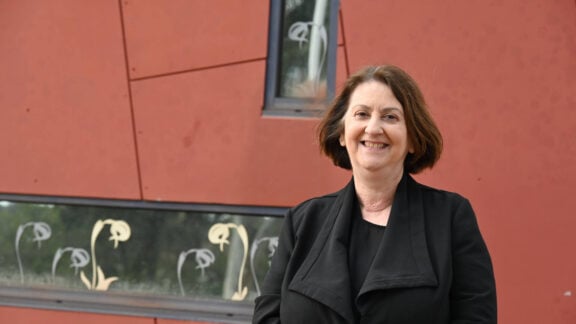When one thinks of famous footballers who have succeeded in combining both their sporting and academic endeavours, the name Socrates springs to mind.
Skipper of the best Brazilian side never to have won a World Cup, the tall, lanky Brazilian was not only blessed with sublime skills on the field, but a fine mind. Not only was he a qualified medical practitioner, but he was a writer on sports, politics and economics.
Another young footballer with a Greek name hoping to succeed in both sporting and academic arenas is Melbourne-born Haris Stamboulidis, who is currently pursuing his twin loves of football and learning by playing college football in the US.
Following the end of his first academic year at Columbia University in New York, the 20-year-old has just completed a two-week break back in his hometown, catching up with relatives and friends before returning to start the second year of his economics major and second season with the Columbia University football team.
For Stamboulidis, playing in Europe as a professional footballer would be a dream. But he also believes that academic qualifications will provide him with a safety net and a livelihood after his professional footballing career ends.
Equally important is his belief that an education at such a prestigious institution provides him with the chance to develop holistically as a person.
Stamboulidis opted for the US college system after receiving an offer from Columbia University in late year 12 while studying for his VCE and after playing in the NPL with Melbourne City.
What convinced him to take the plunge was “the conviction that studying and playing in the US, especially at Columbia University, being an Ivy League college, is really the best of both worlds, as clichéd as that may sound. The structure that’s in place at Columbia, the coaching staff, is second to none. They’re very professional. It’s geared not only to developing one as an athlete-student, but also above all as a person.”
He goes on to explain that the unique aspect of the US college system is the close integration of academia and sport. Training every morning and attending daily classes and studying makes enormous demands on any student’s time and energy. But at Columbia, Stamboulidis says “all our classes and training sessions are created in synch with each other”.
“Everything flows. It’s an all-in-one team environment. We have classes together, we have dieticians, psychologists to help us out. Having all that in one place, I think, is unique to the US and doesn’t exist in Australia.”
There are other pluses to playing and studying in the Big Apple which influenced his decision to move there.
“Being in New York as well opens up a lot of avenues both in the sporting arena but also in the financial field, in which I’m also interested.”
In the sporting arena, playing in the NCAA College League puts him on the radar as far as major league scouts are concerned. As Stamboulidis explains, this has already led to an opportunity to train with MLS club New York Red Bulls’ U23 team, a college select group with some of the best college footballers from all over the country.
His own team at Columbia has players from Germany, Ireland and Canada, many of whom have represented their countries, as has Stamboulidis, who last year represented Greece at U19 level in two games. He describes the standard as quite good. “It’s quite physical, which makes us all think quicker, and improves decision making.”
Having just completed a 16-game season, Stamboulidis has actually written a paper about the issue of the length of the college football season and the benefits of extending the season, but qualifies this by saying, that “the training phases that we go through are very beneficial because it allows us to work on different tactical and technical aspects of our game”.
Because of the constant training and study, Stamboulidis says he hasn’t had time to explore New York as much as he’d like to. He often spends his spare time playing the guitar or piano.
“Music is very soothing when I have all these duties and responsibilities to take care of.”
He says there are times when he misses his family, but says his teammates are in the same boat coming from different places, and help support each other.
“That’s the thing I love about our team, including the coaches. We all have common interests and common goals that we put together to achieve something great.”
His advice to others considering a similar path is, “first of all, any one person has to clearly identify what they want to achieve out of such an experience. And, what does that mean? Set goals. Tangible goals of course”.
“Basics that will never diminish are – work hard and diligently and never give up. I’m sure others would support this. I’ve been told lots of times that I can’t do things but I’ve always had belief and my team around me, my support team. My parents in particular have been immense in that. I think working hard and enjoying the journey as well is very important.
“It’s possible the reality is that not everyone is suited to this experience, because some people may not have this aspiration to study abroad by themselves, to be away from family, to pursue a professional sporting career. But yes, it’s certainly an option for people who’d like to pursue both roads.”







